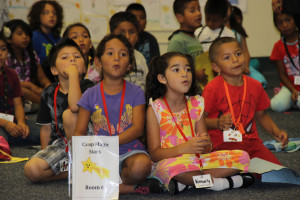On April 11th, the California Department of Education’s Expanded Learning Division released the Intent to Award funding for 21st Century Community Learning Centers (21st CCLC Elementary and Middle School) and 21st Century High School After School Safety and Enrichment for Teens (ASSETs).
Thanks to SB 1221 and all its supporters, this year’s summer funding totaled $5, 432,238, allowing for more than 14,000 summer learning slots in typical 5-week, 6 hour programs. This funding represents an increase of $2,451,113, almost doubling the amount from cohort 9.
With so many new programs starting up this summer, the California Summer Matters Campaign is eager to help. Over the past 7 years, we have developed and curated tools and resources to assist those who want to start a summer program, or embed new elements of quality into existing summer programs. Below are some links to help you get started.
PLANNING RESOURCES:
- Pre-Service Staff Training – core components of a high quality pre-service staff training.
- Program Design and Budget Examples – descriptions of 3 different designs of a summer programs in terms of organization, administration, oversight and budget samples for each design.
- Quick Comprehensive Assessment of Summer Programs (CASP) Quick Reference Guide – research-based quality program standards comprised of 36 indicators to help you shape a quality summer program.
- Six Signs of a Great Summer Program – list of key elements to consider when designing your summer program.
- Summer Learning: An Inspiring Alternative to Summer School – video illustrating key differences between summer learning programs and remedial summer school.
- Summer Program Master Planning Timelines – spreadsheet to help you know what and when to plan throughout the year to build a high-quality summer program. This can be adapted and shortened for a July start this summer, knowing that, for the future, the ideal planning timeline starts in the fall.
- Summer Starts in September: A Comprehensive Planning Guide – research-based strategies, program examples, and tools that program staff and trainers can use to develop high quality summer programs. Available for purchase from the National Summer Learning Association’s website.
After reviewing these resources, please feel free to reach out to the Summer Matters campaign at nazaneen@partnerforchildren.org with any questions. And as you build your programs, please keep in touch. We love to highlight programs doing great work all over California!



